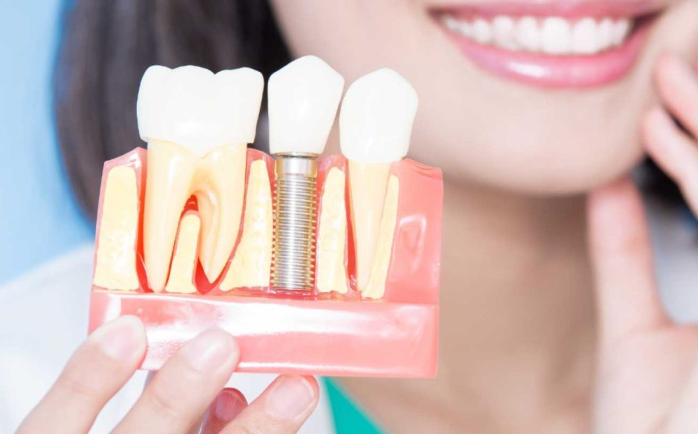Recovering from a dental implant procedure is a vital stage that requires careful attention, adherence to care instructions, and compliance with specific directives. A seamless recovery is key to the effectiveness and longevity of your dental implants. This comprehensive guide will act as a navigation tool for post-operative recuperation, providing essential information and practical advice to facilitate your healing journey and ensure the best possible performance of your new dental implants.
Immediate Post-Operation Care:
Directly after the surgery, arrange for a reliable individual to transport you home, as the lingering effects of anesthesia may impair your ability to drive.
Gently bite down on a gauze pad to control bleeding and promote clot formation at the surgical area. Remember to replace the gauze as soon as it becomes saturated with blood.
Pain Management:
Your dental professional will likely provide a prescription for pain relief medication. It’s crucial to adhere to the prescribed dosage and schedule to manage any discomfort effectively.
You may also opt for over-the-counter pain relief options, but always consult your dentist about suitable choices and the correct dosage.
Oral Hygiene:
Maintaining oral cleanliness is of utmost importance. Gargling with warm salt water several times a day can help cleanse the surgical area.
Refrain from forceful rinsing or spitting, as these actions might hinder the healing process.
Diet Considerations:
Stick to a diet of soft foods and beverages, steering clear of extremely hot foods or drinks. As your recovery advances, you can slowly start to include harder foods again.
Maintain hydration, but avoid using straws for the time being, as the suction could disrupt the surgical site’s healing.
Avoiding Detrimental Activities:
Refrain from smoking and alcohol consumption throughout your recovery, as they can negatively affect the healing process and increase the risk of complications.
Similarly, avoid any strenuous physical exertion for a few days post-operation.
Managing Swelling and Discoloration:
Applying cold compresses to the areas of your face near the surgical sites can help reduce swelling and bruising. Use the cold compresses in intervals.
Elevating your head while sleeping can also aid in minimizing swelling.
Adhering to Dental Professional’s Instructions:
Follow the care instructions from your dentist meticulously. This includes directions on oral hygiene, activity limitations, and medication routines.
Make sure to keep all follow-up appointments for check-ups and professional cleanings.
Using Prosthetic Devices:
If you have been given prosthetic devices such as bridges or dentures, strictly follow your dentist’s guidance on their use during the recovery period.
Monitoring for Complications:
Stay alert for signs of infection or other issues like unusual swelling, prolonged bleeding, or intense pain.
If you detect anything abnormal or if your condition deteriorates, seek immediate medical attention.
Long-Term Care:
Uphold a rigorous oral hygiene routine, including regular brushing, flossing, and dental visits, to maintain the health and longevity of your dental implants.
Maintain a balanced diet to support overall oral health.
Mindful Oral Habits:
Be conscious of habits like teeth grinding or clenching, as they can place excessive stress on the implants.
If your dentist suggests it, consider using protective mouth guards, especially during sleep.
Conclusion:
Your recovery after dental implant surgery is a journey that necessitates commitment, strategic planning, and strict adherence to professional advice. By managing pain efficiently, keeping up with oral hygiene, adopting beneficial nutritional and lifestyle practices, and being vigilant about potential complications, you set the stage for a successful recovery and the best possible functionality of your dental implants.


